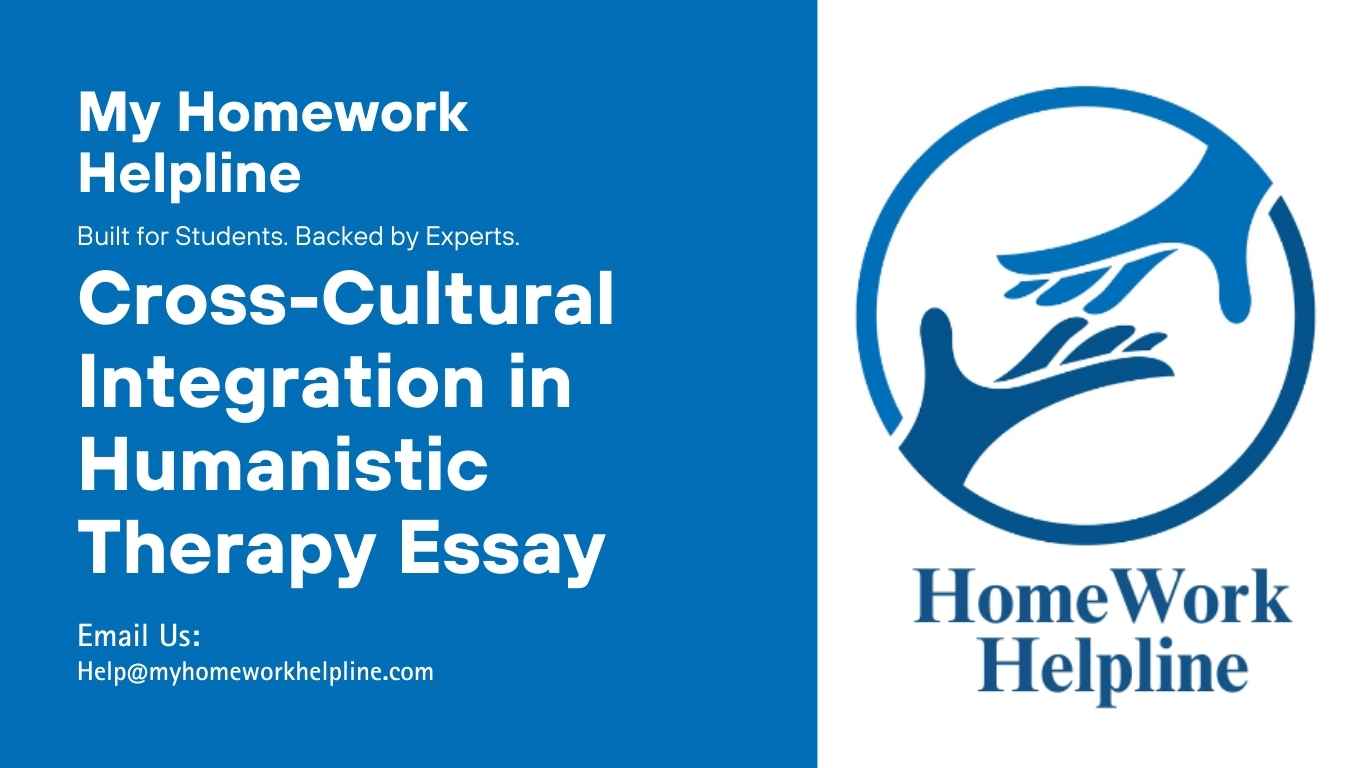Integrating Diversity in Humanistic-Existential Therapy Essay
Emotions are part of human existence regardless of culture, which existential therapy affirms. However, the expression and experience of emotion are significantly influenced by culture, including if a given emotion is perceived as either problematic or healthy. Humanistic-existential therapies need to be culturally competent for cross-cultural emotion exchange to occur. The therapies must be able to identify and adapt to a client’s way of expressing and experiencing their emotion and not impose an intervention to emotion upon the client. To succeed in doing this, it is paramount that the therapist understands the history and current cultural context relating to a client. This helps design how clients may express or experience emotions in therapy. For instance, encouraging Chinese clients to express emotions similar to an individual of a different culture, such as a Bahamian client, would not yield positive results. Therefore, the therapist must adapt to the client’s culture, not vice versa. Research carried out discourages imposing specific approaches on emotional clients. Therapists are usually required to confront different situations in which they have to offer their skills to help the clients find a way to work with their emotions. Comfort and experience with cultural variations in how to work with emotions are vital in assisting therapists in thinking creatively about issues of culture. According to Längle & Klaassen (2021), multiculturalism and evidence-based practice are interconnected. Therefore, while it is impossible to be knowledgeable of all cultures’ relational norms, a therapist must develop sufficient knowledge to identify differences and adapt the therapeutic approach appropriately.
Mastering essays in psychology can be challenging, especially when tackling complex themes like cultural diversity in therapy. At My Homework Helpline, we specialize in psychology homework assistance that helps you craft strong academic papers with clarity and depth. Whether you’re working on a counseling essay or need expert assignment support, visit our Psychology Homework Helpline for professional guidance tailored to your learning goals.
References
Längle, A., & Klaassen, D. (2021). Phenomenology and depth in existential psychotherapy. Journal of Humanistic Psychology, 61(5), 745-756.
Schneider, K.J., Pierson, J.F & Bugental, J.F.T. (Eds) (2015). The Handbook of Humanistic Psychology: Theory, Research and Practice. Thousand Oaks, CA ISBN 9781452267746
Stevens, R. (2021). Humanistic psychology. In Introduction to psychology (pp. 417-472). Psychology Press.

